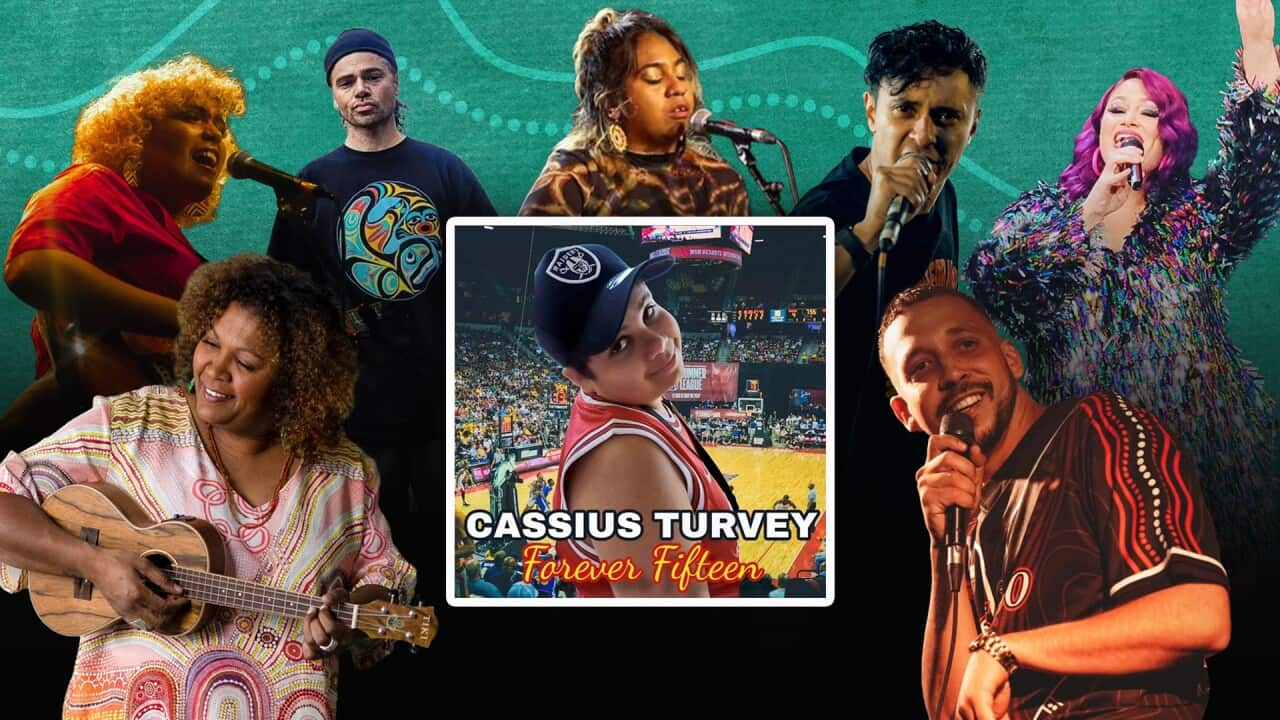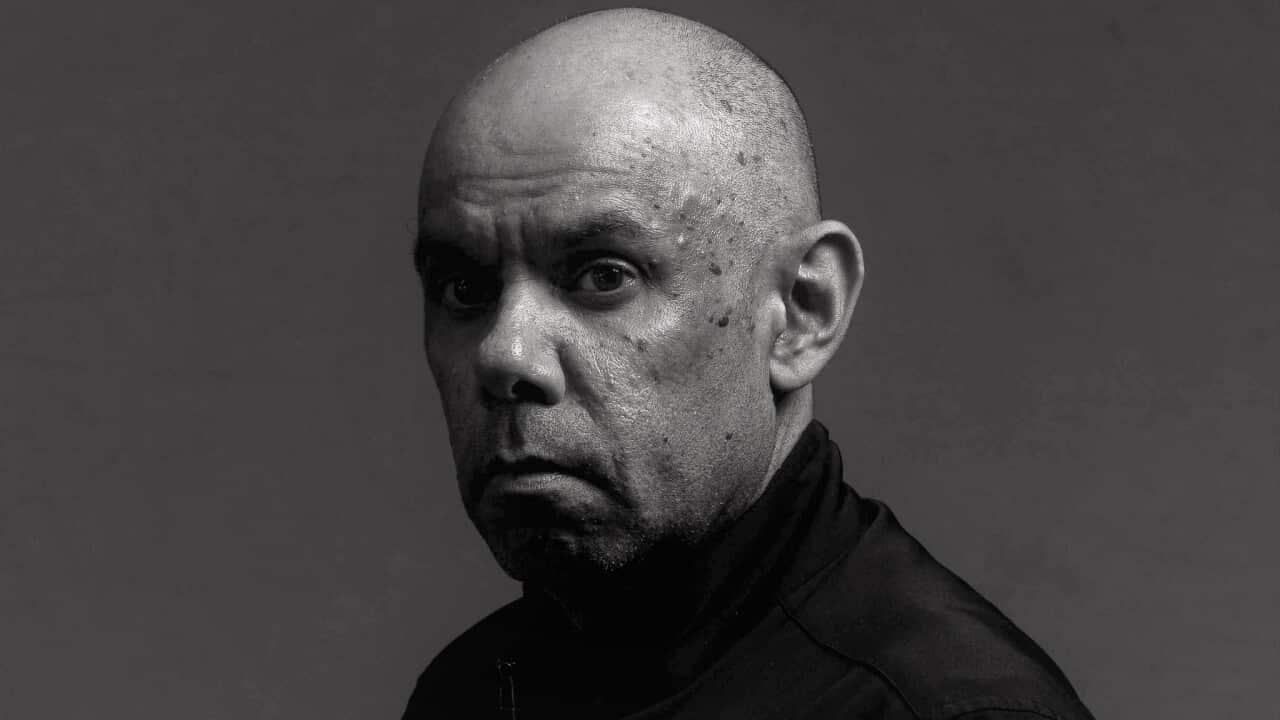When JK-47 first began making music, he tried to imitate the American rappers he had grown up listening to.
But the Minjungbal Gudjinburra performer discovered early on his music journey that he had to find his own sound as an artist, and ultimately his own identity.
Reflecting on his journey has led JK to be open and vulnerable in his music. He found that sharing his own challenges brought him unexpected peace.
"When you bring out all the dirty laundry and keep it real, you bring up the conversation," he said before his appearance at the recent .
"Whether it’s brothers coming up after the show, or mob listening on Spotify, it just starts that conversation."
The new generation's vulnerability
JK is known for covering raw subjects in his music such as racism, addiction, trauma and social injustice. He says that he didn't know the impact his lyrics would have on others.
"I think we’ve made a lot of strides in what we talk about today compared to what it used to be," he explained.
"I talk a lot about my dad in my songs. I put him in there because his generation didn’t know how to yarn truthfully. They covered it up with drugs and alcohol.
"So to be able to speak like this, you don’t have to cover anything up or look for vices to help deal with it.
"It’s very liberating."
Passing 'that peace or happiness on to our kids'
Released in 2020, the title of his debut album 'Made For This' alluded to a higher purpose. It was critically acclaimed and quickly gained him a fanbase.
Following the release with a series of powerful live performances, and awards including the NIMA for Best Album, there has been a clear evolution in the sound of his music, and he has announced that a follow-up album isn't far away, after an .
Now a father himself with a young son, he says that he is motivated to break family patterns and continue to be a strong role model.
I don’t want to be secretive, not letting anyone know what’s really going on.
"Stuff happens in families and in life, and covering it up makes trauma, even though you're not talking about it, you still feel it."
"Once you start talking, you find better ways to deal with it, so we can find a bit of peace and happiness while we’re here.
"Then get to pass that peace and happiness on to our kids, friends and family. That’s what we all need as Blackfullas most of all, to be at peace and happy and together."
Using language to send a message
When the chance came to appear on Triple J's Like A Version, JK chose to cover a 2Pac classic that spoke to themes he could relate to personally and culturally.
The performance resonated widely and set him in the nation's psyche as a voice . He says he chose that particular song to cover as it is "powerful" and that 2Pac as an artist was the "real deal".
He said that the two opening lines written by Jarulah Slabb from Goodjingburra land on Bundjalung nation, speak to the loss of community and connection and why we need to come back to old ways of being together.
The lines mean ‘the sun is setting. It’s time to go back to the fire’.
“What that is saying is that the sun is setting on how we’ve been treating each other... in this new age,” JK said.
“It’s time to go back to how we once did, contributing to each other and contributing to the mob, bringing whatever we can.
"Using our gifts and our talents and contributing to the whole. One nation, one mob. Getting back to that unity.”
While he draws parallels with American hip-hop culture and its power to convey the experience of African Americans, he stops short of comparing it to his own life, and that of First Nations people in Australia.
"I had to speak for this country, this mob, this land and this way."
"Cause this is our home here, so we always get to connect and that’s one of the things that I see, the hip hop from over them ways is different; that sense of identity and belonging is just not there.
"I’m thankful that I can find who I am in the place where I’m at and the people I'm around."













